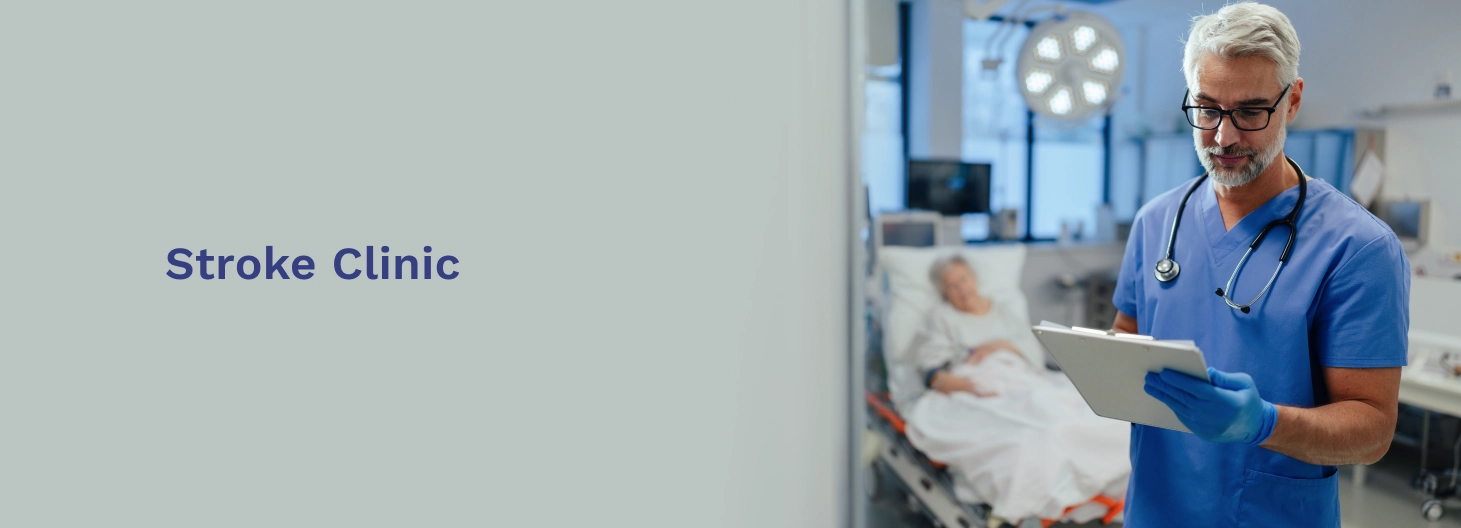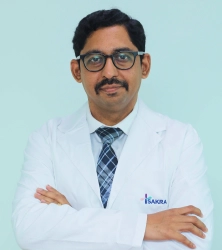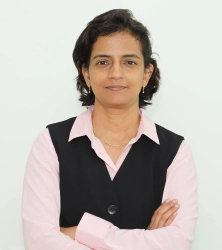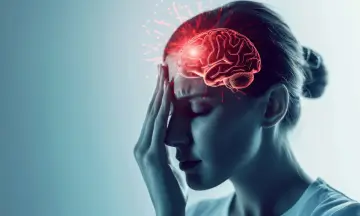Stroke Treatment Hospital in Bangalore
A stroke is a critical medical emergency that requires immediate and expert intervention to prevent permanent brain damage. Timely diagnosis and treatment rely on advanced neuroimaging, skilled multidisciplinary teams, and specialist-led procedures. At Sakra World Hospital, Bangalore — widely regarded as the best hospital for stroke treatment in bangalore — the Stroke Care Unit is dedicated to delivering fast, expert-led treatment with a comprehensive approach. From emergency thrombolysis and minimally invasive endovascular procedures to long-term rehabilitation, the hospital ensures holistic stroke care using state-of-the-art technology and highly experienced specialists.
Understanding Stroke
A stroke occurs when blood flow to a part of the brain is interrupted, depriving brain cells of vital oxygen and nutrients. Without quick medical intervention, this can result in permanent damage or even death. A stroke can impair essential functions like movement, speech, cognition, and breathing, making rapid treatment crucial.
Why Sakra?
Sakra World Hospital is a leading stroke care hospital in Bangalore, fully equipped and always prepared to provide emergency stroke care. Here's what makes it a top choice:
- Advanced imaging and neurodiagnostics like CT, MRI, and Doppler
- A multidisciplinary team including neurologists, neurosurgeons, and rehabilitation experts
- Rapid response protocol to initiate treatment at the earliest sign of stroke
- Comprehensive treatment options including thrombolysis, mechanical thrombectomy, and surgery
- Personalised rehab programs — physical, cognitive, and speech therapies
- Stroke-focused infrastructure with modern ICU and neuro-rehab support
- Round-the-clock stroke team ensuring seamless care from admission to recovery
Types of Stroke
Stroke is classified into three main types, each with different causes and treatments:
1. Ischemic Stroke (Most Common)
Causes:
- Atherosclerosis (narrowing of arteries)
- Atrial fibrillation (irregular heartbeat)
- Embolism (clot from another part of the body)
Symptoms:
- Sudden weakness/numbness (often one-sided)
- Trouble speaking or understanding
- Vision problems
- Loss of balance
Treatment:
- tPA (Thrombolysis): A clot-busting medication effective within 4.5 hours of symptoms
- Mechanical Thrombectomy: A minimally invasive procedure to remove large clots
2. Hemorrhagic Stroke (Less Common, More Severe)
Occurs due to bleeding in or around the brain from a ruptured blood vessel.
Causes:
- Uncontrolled high blood pressure
- Ruptured aneurysms or AVMs
- Blood-thinning medications
Symptoms:
- Sudden severe headache
- Vomiting and confusion
- Seizures
- Loss of consciousness
Treatment:
- Blood pressure control
- Surgery (e.g., craniotomy or endovascular repair)
3. Transient Ischemic Attack (TIA – Mini-Stroke)
A temporary blockage of blood flow to the brain with stroke-like symptoms that resolve within hours.
Causes:
- Brief blood clots
- Narrowed arteries
- Cardiac embolism
Symptoms (temporary):
- Weakness or numbness
- Difficulty speaking
- Vision loss
- Dizziness
Why It’s Important:
- TIA is a warning sign — 1 in 3 people will have a full stroke within a year if left untreated
- Early treatment can prevent serious stroke outcomes
Warning Signs of Stroke and Why Time Matters
Immediate medical attention is essential when stroke symptoms appear. Quick action significantly improves recovery chances and reduces long-term disability.
Common Signs:
- Numbness or weakness in the face, arm, or leg (often on one side)
- Slurred or incoherent speech
- Vision changes
- Loss of coordination
- Sudden severe headache with vomiting (in hemorrhagic stroke)
The Golden Hour: Every Minute Counts
The first 60 minutes after stroke onset — known as the "Golden Hour" — are critical. Initiating treatment in this window drastically improves outcomes.
- Ischemic Stroke: tPA is most effective within 4.5 hours, ideally within the first hour
- Hemorrhagic Stroke: Early management reduces brain damage and life-threatening complications
BE FAST: A Simple Stroke Recognition Tool
- B – Balance: Sudden dizziness or loss of coordination
- E – Eyes: Sudden vision trouble
- F – Face: Drooping on one side
- A – Arms: Weakness in one arm
- S – Speech: Slurred or confused speech
- T – Time: Call emergency services immediately
Why BE FAST Matters:
- Recognising stroke symptoms early and without delay can make a life-changing difference.
- Every moment counts; with each passing second, nearly 2 million brain cells are lost.
- Acting quickly not only improves the chances of survival but also reduces long-term disability. By staying alert and responding fast, you could save your own life or that of a loved one.
Facilities & Services
Comprehensive Stroke Care at Sakra World Hospital
Sakra World Hospital is one of the leading centres for emergency stroke care in Bangalore. Our dedicated Stroke Care Centre delivers end-to-end treatment solutions tailored for every stage of stroke – from emergency response and accurate diagnosis to advanced treatment, rehabilitation, and long-term care.
Expertise in Stroke Diagnosis & Treatment
Effective stroke care begins with timely diagnosis and prompt treatment. At Sakra World Hospital, we use the most advanced diagnostic technologies to quickly identify the type of stroke and initiate the most appropriate intervention.
- Imaging Technology: Our team leverages high-end neuroimaging tools such as CT scans, MRIs, and Doppler studies to detect clots, bleeding, and other brain abnormalities in real-time, ensuring faster decision-making.
- Thrombolysis (tPA): In cases of ischemic stroke, our stroke specialists administer tissue plasminogen activator (tPA) – a clot-dissolving drug that can restore blood flow if given within the critical window of time.
- Endovascular Treatment: For complex stroke cases involving large vessel blockages, we perform mechanical thrombectomy – a minimally invasive procedure to extract clots and restore circulation, minimising brain damage.
- Surgical Interventions: For hemorrhagic strokes, our neurosurgical team performs procedures such as craniotomy to remove blood clots and reduce pressure in the brain, ensuring both immediate relief and long-term stability.
Multidisciplinary Stroke Care Team
Successful stroke recovery requires a collaborative approach. At Sakra World Hospital, a skilled multidisciplinary team comes together to address every aspect of stroke care:
- Neurologists: Renowned for their expertise, our neurology team carefully evaluates each case and recommends the best course of treatment based on stroke type and severity.
- Neurointerventionalists: These specialists offer minimally invasive solutions like thrombectomy and targeted clot therapies to reduce damage and speed up recovery.
- Rehabilitation Experts: Our team of physiotherapists, speech and occupational therapists help patients regain mobility, communication, and daily living skills.
- Dietitians & Lifestyle Coaches: Personalised diet and lifestyle plans are created to control risk factors like hypertension and diabetes, promoting long-term wellness.
Stroke Rehabilitation and Recovery
Recovery after a stroke is a gradual and focused process. At Sakra World Hospital, we provide individualised rehabilitation strategies to help patients regain functionality and improve quality of life:
- Physical Therapy: Helps restore strength, coordination, and balance, enabling the patient to regain independence in movement.
- Speech Therapy: Supports recovery of speech, language, and swallowing functions, reducing the risk of complications like aspiration.
- Occupational Therapy: Rebuilds the ability to perform everyday tasks such as dressing, eating, and grooming through guided skill training.
- Cognitive Therapy: Assists patients with memory loss, confusion, or problem-solving challenges, using structured brain-training exercises.
We also offer outpatient rehab programs, ensuring continuous support and care even after hospital discharge, helping patients transition smoothly back to daily life.
Personalised Stroke Care Plan
Every stroke is different, and so is every recovery journey. At Sakra World Hospital, we focus on personalised care plans tailored to each patient’s needs and condition:
- Comprehensive Evaluation: An in-depth assessment allows our stroke team to design an effective, customised treatment strategy.
- Individualised Treatment Pathways: Depending on the stroke type, interventions may include thrombolysis, thrombectomy, or surgical treatment – chosen to deliver the best possible outcome.
- Recovery & Prevention: Beyond immediate treatment, we emphasise long-term recovery and stroke prevention through medications, health monitoring, and lifestyle changes.
- Psychological Support: Our specialists offer counselling and emotional support to help patients and families cope with the psychological challenges of stroke recovery.









